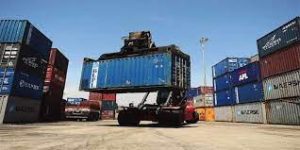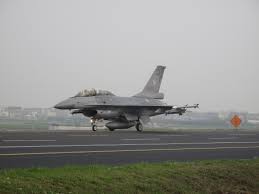Today Current Affairs: 29th July 2022 for UPSC IAS exams, State PSC exams, SSC CGL, State SSC, RRB, Railways, Banking Exam & IBPS, etc
Table of Contents
Indian Startup Ecosystem:

Various reforms and initiatives by the Government have led to booming of the Indian Startup ecosystem.
- The term startup refers to a company in the first stages of operations. Startups are founded by one or more entrepreneurs who want to develop a product or service for which they believe there is demand.
- These companies generally start with high costs and limited revenue, which is why they look for capital from a variety of sources such as venture capitalists.
- The Department for Promotion of Industry and Internal Trade (DPIIT) has recognized startups which are spread across 56 diversified sectors.
- More than 4,500 Startups have been recognized in sectors relating to emerging technologies such as Internet of Things (IoT), robotics, artificial intelligence, analytics, etc.
- Sustained Government efforts in this direction have resulted in increasing the number of recognized Startups from 471 in 2016 to 72,993 in 2022.
Trade Infrastructure For Export Scheme (TIES Scheme):

The central government has released Rs 206 crore to states for the promotion of exports under the Trade Infrastructure for Export Scheme (TIES) initiative.
- Under the TIES, financial assistance for 27 export infrastructure projects have been approved during FY 2019-20 to 2022-23.
- Union Ministry of Commerce and Industry launched the Trade Infrastructure for Export Scheme (TIES) in 2017.
- After delinking the Assistance to States for Development of Export Infrastructure and Allied Activities (ASIDE) Scheme in 2015, the State Governments had been consistently requesting the support of the Centre in creation of export infrastructure.
- Objective:
- To assist Central and State Government agencies in the creation of appropriate infrastructure for the growth of exports.
- The scheme can be availed by States through their implementing agencies, for infrastructure projects with significant export linkages like Border Haats, Land customs stations, quality testing and certification labs, cold chains, trade promotion centres, export warehousing and packaging, SEZs and ports/airports cargo terminuses.
- The Central Government assistance for infrastructure creation will be in the form of grant-in-aid, normally not more than the equity being put in by the implementing agency or 50% of the total equity in the project.
- In the case of projects located in North Eastern States, Himalayan States including UT of J&K, Ladakh this grant can be up to 80% of total equity.
Project For Saturation Of 4G Mobile Services In Uncovered Villages:

The Union Cabinet approved a project for saturation of 4G mobile services in uncovered villages across the country at a total cost of Rs. 26,316 Cr.
- The project will provide 4G mobile services in 24,680 uncovered villages in remote and difficult areas.
- The project has a provision to include 20% additional villages on account of rehabilitation, new-settlements, withdrawal of services by existing operators etc.
- In addition, 6,279 villages having only 2G/3G connectivity shall be upgraded to 4G.
- The project will be executed by BSNL using Atmanirbhar Bharat’s 4G technology stack and will be funded through Universal Service Obligation Fund.
- The project cost of Rs. 26,316 Cr includes capex and 5 year opex.
- The project is a significant step towards the vision of the Government to provide mobile connectivity in rural areas.
- Last year Government approved a project for providing 4G mobile services in 7,287 uncovered villages in 44 aspirational districts across 5 states.
- In his Independence Day address in 2021, Prime Minister Shri Narendra Modi gave a call for saturation of government schemes.
FIFA Under 17 Women’s World Cup 2022 In India:

The Union Cabinet has approved the Signing of Guarantees for hosting Federation Internationale de Football Association (FIFA) Under 17 Women’s World Cup 2022 in India.
- FIFA U-17 Women’s World Cup 2022 is scheduled to be held in India between 11th and 30th October 2022.
- The seventh edition of the biennial youth tournament will be the first-ever FIFA women’s competition to be hosted by India.
- The FIFA U-17 Women’s World Cup is the world championship for female players under or upto the age of 17, organized by FIFA.
- The event started in 2008 and is traditionally held in even-numbered years.
- The 6th edition of the event was held in Uruguay from 13th November to 1st December, 2018.
- Spain is the current champion of FIFA Under-17 Women’s World Cup.
Han Kuang Military Exercises 2022:

First stage of the Han Kuang Military Exercises was concluded recently and its second stage started on July 25, 2022. Second stage will run until July 29. The exercises involve all branches of Military of Taiwan.
During the Han Kuang Exercises;
- A hostile enemy tried to seize control of key waterway near to capital of Taiwan.
- Invading forces attacked from sea & air and target mouth of Tamsui River on northern coast of Taiwan.
- Tamsui River is a strategic estuary which provides direct access to the centre of Taipei.
- To answer the invading forces, Taiwan’s military scrabbled the Indigenous Defence Fighter (IDF) jets and tanks.
- On the other hand, on ground troops blasted explosives to control their advancement.
- In the year 2022, these exercises have a greater significance, due to increasing concerns over China’s intentions towards Taiwan.
- Taiwan is a self-governing island. But the ruling Communist Party of China claims Taiwan as its territory.
- These concerns have been further increased due to Russia’s invasion of Ukraine because, China has not ruled out to use force to take over Taiwan.
- Furthermore, China asks US take relevant actions in a bid to comply with China’s commitment of not supporting ‘Taiwan independence’.
About Han Kuang Exercise:
- Han Kuang Exercise is the annual military exercise of all the branches of Taiwan’s military and its reserve forces in Taiwan, Kinmen, Penghu and Matsu.
- It is being held since 1984. It is held to boost overall defence capabilities of the forces, in a bid to combat readiness during an attack from People’s Liberation Army of China.
The National Anti-Doping Bill, 2021 Passed:

The bill seeks to provide a statutory framework for the functioning of the National Anti-Doping Agency (NADA) and the National Dope Testing Laboratory in sports.
- It also seeks to give effect to the United Nations Educational, Scientific and Cultural Organisation International Convention against doping in sports and compliance with such other obligations and commitments.
- Aim of the bill: It prohibits athletes, athlete support personnel and other persons from engaging in doping in sports.
- Doping is the consumption of certain prohibited substances by athletes to enhance performance.
Key Features of the passed bill:
- The Bill prohibits athletes, athlete support personnel and other persons from engaging in doping in sports.
- Support personnel includes the coach, trainer, manager, team staff, medical personnel, and other persons working with or treating or assisting an athlete.
- No violation of the following rules:
- presence of prohibited substances or their markers in an athlete’s body
- use, attempted use or possession of prohibited substances or methods
- refusing to submit a sample
- trafficking or attempted trafficking in prohibited substances or methods, and
- aiding or covering up such violations.
- If any athlete requires a prohibited substance or method due to a medical condition, they may apply to the National Anti-Doping Agency for a therapeutic use exemption.
- Anti-doping rule violation by an individual athlete or athlete support personnel may result in disqualification from an event already held- seizer of prize, ineligibility to participate in a competition to be held, and financial sanctions
- Currently, anti-doping rules are implemented by the National Anti-Doping Agency, which was established as a society.
- The Bill provides for constituting this National Anti-Doping Agency as a statutory It will be headed by a Director General appointed by the central government.
- The Agency will also have the power to collect certain personal data of athletes such as (a) sex or gender, (ii) medical history, and (iii) whereabout information of athletes (for out of competition testing and collection of samples).
- National Board for Anti-Doping in Sports: The Bill establishes a National Board for Anti-Doping in Sports to make recommendations to the government on anti-doping regulation and compliance with international commitments on anti-doping.
- Anti-doping Appeal Panels: The Board will constitute a National Anti-Doping Disciplinary Panel for determining the consequences of anti-doping rule violations.
- This Panel will consist of a Chairperson and four Vice-Chairpersons (all legal experts), and ten members (medical practitioners and retired eminent athletes).
Anti-Retroviral Therapy (ART):

India is a facing shortage of dolutegravir (given to adults and children) and nevirapine drugs (only for infants) used in ART for HIV-positive patients.
- These drugs help in protecting CD4 cells thus keeping the immune system strong enough to fight off the disease.
- HIV attacks CD4 (a type of White Blood Cell (T cells)- which detects anomalies and infections in cells).
- Patient with HIV can have CD4 count as low as 200 (a normal person have a 500-1600 count)
- As per the India HIV Estimation 2019 report, incidences of HIV had been reducing in India since 2000.
- Recently: A US patient with leukaemia has become the first woman and the third person to date to be cured of HIV after receiving a stem cell transplant from a donor who was naturally resistant to the virus that causes AIDS
World Hepatitis Day : Theme 2022

World Hepatitis Day is observed each year on 28th July to enhance awareness of viral hepatitis.
- The theme for the year 2022 is “Bringing hepatitis care closer to you”.
- It aims to highlight the need to bring hepatitis care closer to primary health care facilities, and so communities, to ensure better access to treatment and care.
- The word hepatitis refers to any inflammation of the liver — the irritation or swelling of the liver cells from any cause.
- It can be acute (inflammation of the liver that presents with sickness — jaundice, fever, vomiting) or chronic (inflammation of the liver that lasts more than six months, but essentially showing no symptoms).
- Usually caused by a group of viruses known as the “hepatotropic” (liver directed) viruses, including A, B, C, D and E.
- Other viruses may also cause it, such as the varicella virus that causes chicken pox.
- SARS-CoV-2, the virus causing Covid-19 may injure the liver too.
- Other causes include drugs and alcohol abuse, fat buildup in the liver (fatty liver hepatitis) or an autoimmune process in which a person’s body makes antibodies that attack the liver (autoimmune hepatitis).
- Hepatitis is the only communicable disease where mortality is showing an increasing trend.
- Treatment:
- Hepatitis A and E are self-limiting diseases (i.e. go away on their own) and require no specific antiviral medications.
- For Hepatitis B and C, effective medications are available.
- Approximately 354 million people are suffering from hepatitis B and C.
- Southeast Asia has 20% of the global morbidity burden of hepatitis.
- About 95% of all hepatitis-related deaths are due to cirrhosis and liver cancers caused by the hepatitis B and C virus.
- Viral hepatitis, caused by hepatitis viruses A through E, still remains a major public health problem in India
- India has “intermediate to high endemicity” for Hepatitis B surface antigen and an estimated 40 million chronic HBV infected people, constituting approximately 11% of the estimated global burden.
- Population prevalence of chronic HBV infection in India is around 3-4 %




